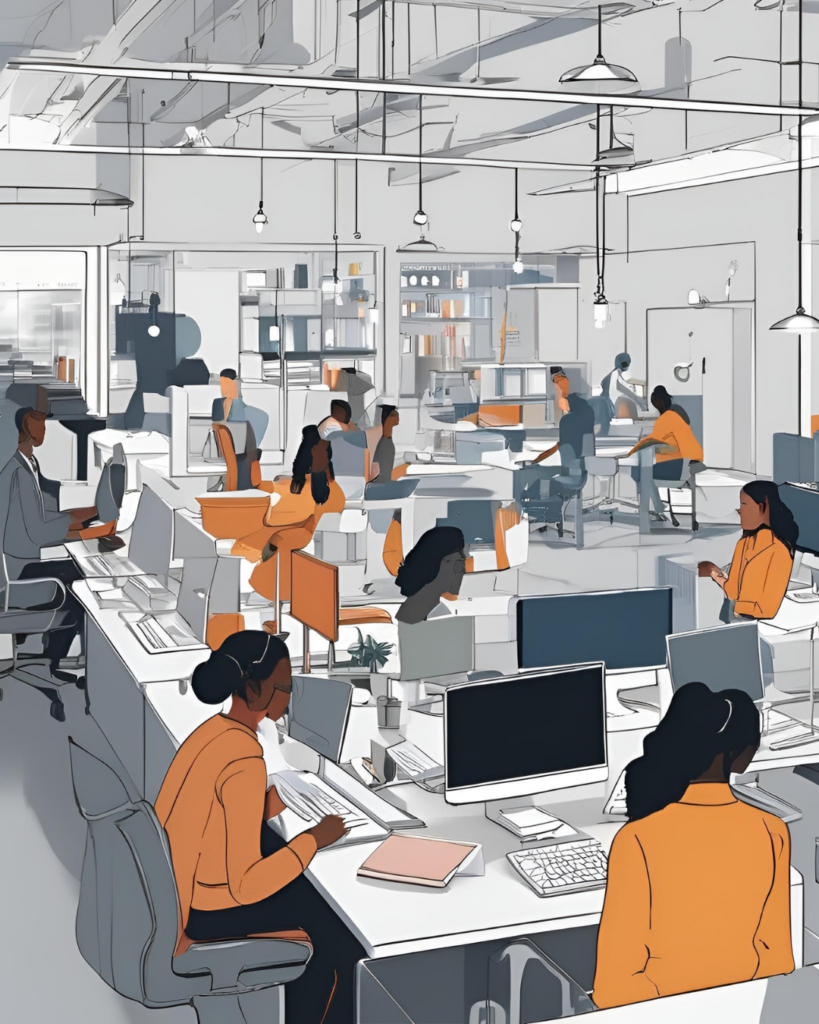As our understanding of neurodiversity grows, businesses recognize that creating a more inclusive work environment isn’t just a matter of compliance—it’s about compassion, innovation, and long-term success. The key to making workplaces truly neurodivergent-friendly isn’t about adding a few accommodations here and there; it’s about making them more human-friendly for everyone.

A More Human Workplace Benefits Everyone
Many organizations approach neurodiversity through a lens of “special accommodations,” when in reality, the changes that support neurodivergent individuals often create a more effective and welcoming environment for all employees. Flexible work arrangements, quiet spaces, clear communication, and opportunities for individual growth don’t just benefit those with ADHD, autism, dyslexia, or other neurodivergent traits—they enhance productivity, well-being, and engagement across the board.
For example, consider workplace lighting. Harsh fluorescent lights can be overwhelming for employees with sensory sensitivities and contribute to general fatigue and discomfort. Providing adjustable lighting or natural light options can improve focus and energy levels for everyone. Similarly, offering structured workflows with clear expectations helps neurodivergent employees navigate tasks more effectively while also reducing confusion and stress for all team members.

Rethinking Communication and Collaboration
A key aspect of an inclusive workplace is the way information is shared. Many neurodivergent individuals thrive on clear, written communication that reduces ambiguity, yet this practice benefits all employees by setting clear expectations and reducing misunderstandings.
Fostering a culture of acceptance and open dialogue about different communication styles can help teams work together more effectively. Some employees may prefer asynchronous communication to process information at their own pace, while others may benefit from direct, face-to-face conversations. Allowing employees to choose what works best fosters a more inclusive and efficient environment.

Embracing Flexible Work Models
The traditional 9-to-5 office model doesn’t work for everyone—and that’s okay. Offering remote work options, flexible hours, or hybrid schedules allows employees to work in ways that align with their strengths. Many neurodivergent individuals perform best when they can structure their work around their rhythms, whether working in focused bursts, taking movement breaks, or managing energy levels throughout the day.
Organizations that embrace flexibility not only accommodate neurodivergent employees but also attract and retain top talent from all backgrounds. The pandemic accelerated the realization that employees are most productive when they have autonomy—why not extend that lesson to a long-term strategy?

Building a Culture of Psychological Safety
One of the most crucial elements of a neurodivergent-friendly workplace is fostering psychological safety. Employees need to feel comfortable asking for accommodations, sharing their needs, and being authentic without fear of judgment or retaliation.
Leaders play a significant role in setting this tone. Encouraging open conversations about neurodiversity, providing education on inclusive practices, and ensuring that company policies reflect genuine support—not just performative gestures—are essential to creating a more inclusive culture.

Small Changes, Big Impact
The good news is that making workplaces more neurodivergent-friendly doesn’t require massive overhauls—it starts with small, intentional shifts. Here are a few changes that can have an immediate impact:
- Offer sensory-friendly spaces with adjustable lighting, noise control, and quiet areas.
- Provide multiple modes of communication (written, verbal, visual) to accommodate different processing styles.
- Encourage flexible work arrangements to allow employees to work in ways that suit their needs.
- Train leadership and teams on neurodiversity awareness to build a culture of understanding.
- Prioritize mental health and well-being by normalizing breaks, self-care, and open discussions about individual needs.
The Future of Work is Inclusive
Making workplaces more neurodivergent-friendly is about recognizing and valuing the diverse ways people think, work, and thrive. When we design work environments with human needs at the center, we create spaces where innovation, collaboration, and well-being can flourish—for everyone.
The future of work isn’t just about accommodating differences; it’s about embracing them. By making workplaces more inclusive for neurodivergent individuals, we’re paving the way for a better, more adaptable, and more compassionate future for all.
To see my full Forbes article, please read more here: To Make Your Office More Neurodivergent-Friendly, Make It More Human-Friendly
For more of my work with Forbes, please read here:
Morals Versus Ethics: Building An Organizational Culture Of Trust And Transparency
